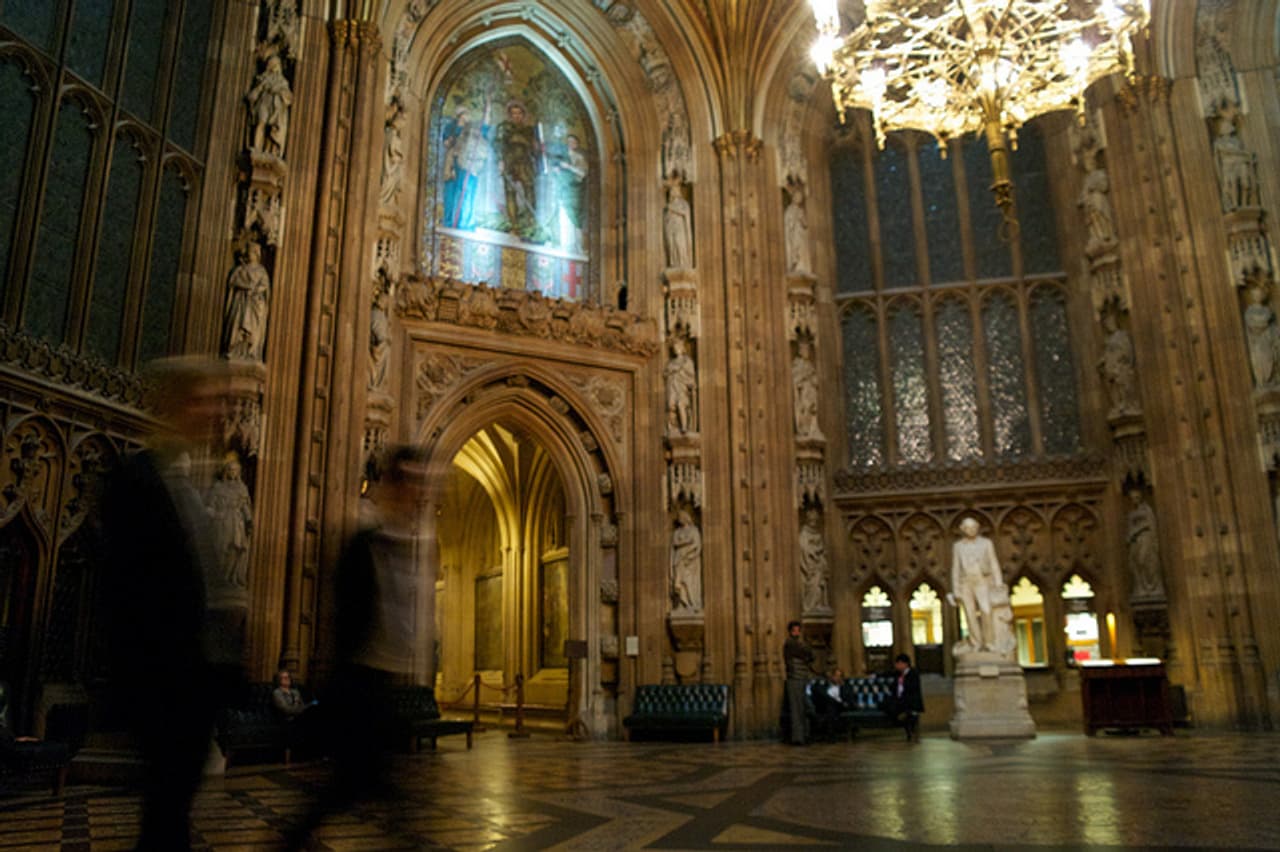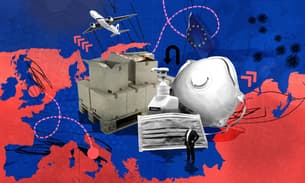
Analysis: How rules allow ministers to keep meetings with lobbyists under wraps
Communities Secretary Eric Pickles has been vociferous in his criticism of local councils’ use of lobbying firms, which he banned last year.
‘Lobbyists are being used to sidestep transparency laws,’ he said in the Guardian last November. ‘Lobbyists are not subject to Freedom of Information or transparency rules. Democracy is at its strongest when it is cost-efficient, open and transparent…’
But local authorities may feel they have to hire lobbyists so they are on a level playing field with companies that are also using them. For example, Farnborough Airport – Britain’s only dedicated business airport – had Bell Pottinger Public Affairs on its side when Rushmoor Borough Council refused the airport permission to expand in 2009.
BPPA’s website said the Secretary of State was likely to be involved in the final planning decision and added: ‘therefore … BPPA has devised and managed a national political engagement strategy to help build awareness and support for Farnborough Airport within government.’ The web page for BPPA’s planning team also includes a quote from Farnborough Airport’s chief executive in which he states that the lobbyists’ ‘extensive network of political contacts have made them an invaluable part of our project team‘.
To try to establish the extent of the firm’s lobbying activities, the Bureau asked Mr Pickles’ department of Communities and Local Government, which is responsible for planning appeals, for copies of all correspondence, including notes of meetings and telephone calls, between members of the department and BPPA relating to Farnborough Airport.
The answer came: there wasn’t any. Neither was there a single note from BPPA amongst the reams submitted to the Planning Inspectorate during a public inquiry on the airport expansion held in 2010.
So how did BPPA manage its ‘political engagement strategy’ without communicating with the most relevant government department? The answer may lie in a point made on the firm’s website, which notes that BPPA frequently hosts ‘small dinners and informal workshops for our clients with senior politicians and advisers‘.
The Bureau recently revealed that Mr Pickles was a guest at one of these BPPA dinners at the Savoy, which was also attended by the chief executive of Farnborough Airport and took place nine days before Mr Pickles’ department approved the airport’s expansion.
Under the government’s ministerial code, which was updated after last year’s election, ministers are required to declare all hospitality accepted in a ‘ministerial capacity’ and all meetings with external organisations on a register published quarterly.
But Mr Pickles’ declarations of hospitality fail to mention the Savoy dinner ‘because the Secretary of State was not invited in his ministerial capacity’.
Mr Pickles hasn’t broken the rules, and both his department and Bell Pottinger insist the airport was not discussed at the dinner.
The problem is that a gaping hole in the code means ministers do not have to declare any meetings they deem private.
Related article: Loophole means lobbying at party conferences goes undeclared.
BPPA chairman Peter Bingle’s blog suggests he regularly meets senior politicians on an informal basis. A fortnight after the Savoy dinner, Mr Bingle described spending most of an evening in the House of Lords’ Pugin Room with ‘three of my favourite politicians’, including Stephen Hammond, who is Mr Pickles’ parliamentary private secretary. And on June 21 2011 the lobbyist tweeted: ‘Just had a drink on the terrace with Stephen Hammond. Quite apart from being a nice guy why isn’t he a minister?‘
Just over a week later Mr Bingle wrote that Bell Pottinger had hosted a dinner for justice secretary Ken Clarke. Guests at the event included G4S, a private security firm which had previously been awarded contracts to run two prisons by the Ministry of Justice.
A G4S spokesman told the Bureau: ‘A senior member of our UK management team attended the dinner… along with a number of other guests from other major British companies. There was a wide-ranging political discussion’. Two weeks after the dinner Mr Clarke announced plans to privatise eight further prisons.
When first approached by the Bureau, the Ministry of Justice said Mr Clarke had attended the dinner in a private capacity and would therefore not need to declare it. But later a spokesman for the justice secretary confirmed he would declare the dinner in the next publication of the register.
Other government departments have helped keep lobbyists’ activities in the dark. The Bureau’s request of the Department of Business, Innovation and Skills for details of correspondence with Bell Pottinger, for example, was met with refusal. ‘Releasing such information could prejudice the commercial interests of Bell Pottinger and their clients as this would not have been common knowledge,’ said a BIS spokesman, who also cited Data Protection laws.
In a speech before last year’s general election, David Cameron said lobbying was a scandal waiting to happen. ‘We don’t know who is meeting whom,’he said. ‘We don’t know whether any favours are being exchanged. We don’t know which outside interests are wielding unhealthy influence … I believe that secret corporate lobbying, like the expenses scandal, goes to the heart of why people are so fed up with politics.’
The Conservatives would be the party to ‘sort this out,’ he promised. ‘I believe it’s time we shone the light of transparency on lobbying in our country.’
He might like to start by amending the rules to state that meetings with lobbyists, however friendly and informal, should not be classed as private. And that the ‘the light of transparency’ should not be obscured by the commercial interests of public affairs firms.




